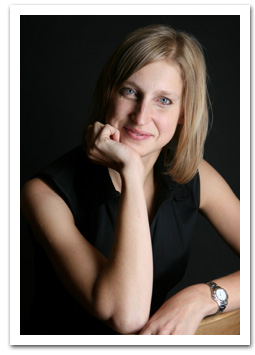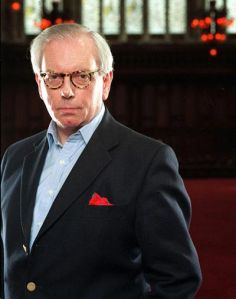HISTORIANS have their say
Jump to navigation
Jump to search
|
Dr. Tracy Borman Despite the inaccuracies, the show, starring Irish actor Jonathan Rhys Meyer as Henry VIII, had successfully recreated the drama and atmosphere of his court, said Dr Borman, the head of interpretation for Historic Royal Palaces. (left) Despite the inaccuracies, the show, starring Irish actor Jonathan Rhys Meyer as Henry VIII, had successfully recreated the drama and atmosphere of his court, said Dr Borman, the head of interpretation for Historic Royal Palaces. (left)Dr Borman, also the Heritage Education Trust chief executive, praised the show for having "undoubtedly stimulated interest in British history".... Dr Borman, who has studied the Tudors for "years", admitted to the Radio Times that it was historically inaccurate."I was determined to loathe the series, with its unfeasibly beautiful actors, dodgy costumes and improbable storylines, but found myself becoming strangely addicted," she said. "I grew to appreciate The Tudors for its merits as a historical drama. "Yes, the scriptwriters may have taken liberties with the facts, but they have also succeeded in re-creating the drama and atmosphere of Henry VIII's court, with its intrigues, scandals and betrayals."... Dr Borman said that while Rhys Meyers bore "little resemblance to the red-headed, bloated image people have of the King Henry... he does at least evoke the dangerously seductive charisma and magisterial arrogance that kept a court in thrall for almost 40 years". She said the show had "undoubtedly stimulated interest in British history". "Television dramas, films and novels can inspire an abiding passion for their subject," she said. "Provided that they encourage people to find out what 'really' happened, rather than being treated as reliable historical sources in their own right, then they can and should be respected as a force to be reckoned with in the world of history." In the show's third series, which begins airing this week, details on what made King Henry into a cruel tyrant are detailed. Dr Borman said viewers begin to see his fallibility.He begins to look older and is increasingly plagued by an injury sustained while jousting in January 1536, she said.Dr Borman said although King Henry recovered he would never joust again. "Many historians believe that it profoundly affected his personality, turning him from a vibrant, fun-loving king into the cruel, paranoid tyrant of his later years – a theme that is picked up on in the new series" she said. Earlier this year, Ben Stephenson, the BBC's new controller of drama commissioning, said that period drama did not have to be strictly accurate."We take the feedback on board but, for me, the purpose of drama is to entertain, not to be slavish about detail. I think that absolute dedication to perfect detail is something for a documentary and not something for a drama, he said in an interview with The Daily Telegraph. [Source: <a class="external" href="http://www.telegraph.co.uk/culture/tvandradio/6005582/BBC-period-show-The-Tudors-is-historically-inaccurate-leading-historian-says.html" rel="nofollow" target="_blank" title="telegraph.co.uk">telegraph.co.uk</a> - date: 10 Aug 2009 - Author: Andrew Hough - excerpted] |
Dr. David Starkey The historian David Starkey has lambasted the BBC over the swashbuckling dramatisation The Tudors, saying the corporation should be ashamed of the series, which features the increasingly bloated Henry VIII played by the lissom Irish actor Jonathan Rhys Meyers, usually half naked and tumbling into bed with some woman auditioning to become one of the six wives. The historian David Starkey has lambasted the BBC over the swashbuckling dramatisation The Tudors, saying the corporation should be ashamed of the series, which features the increasingly bloated Henry VIII played by the lissom Irish actor Jonathan Rhys Meyers, usually half naked and tumbling into bed with some woman auditioning to become one of the six wives."The Tudors is terrible history with no point," Starkey said at the Cheltenham literature festival. "It's wrong for no purpose. I've got no problem with getting history wrong for a purpose - Shakespeare often got things wrong for a reason. But it's the randomised arrogance of ignorance of The Tudors. Shame on the BBC for producing it." In fact, the BBC did not produce the series but bought it in. A spokeswoman said yesterday: "The Tudors is not a drama-documentary, which has always been made clear, but a highly authored and entertaining interpretation of events in a period in history." The second series has just ended on the BBC, with Henry halfway through the wives, having got rid of Anne Boleyn. Historically, the king should be in his 40s and already putting on the enormous bulk of his later life, but the actor playing him is still slender as a blade of grass, reportedly to increase the box office appeal of the series. The drama has attracted a steady audience of about 2.3 million viewers - rather less than some of Starkey's own documentaries, including Henry and His Wives, and another on the history of the monarchy whose ratings thrashed the then hit soap opera Ally McBeal. The first series attracted 3.2 million viewers. The Tudors is an independent co-production between Peace Arch, Showtime and Working Title, and is filmed in Ireland. Starkey, though a serious academic, has also cheerfully described himself as "an all-purpose media tart", and relishes controversy. When he was described as "the rudest man in Britain" for his acid tongue on Radio 4's The Moral Maze, he gleefully calculated that the title added at least £100,000 a year to his earnings. [source: <a class="external" href="http://www.guardian.co.uk/media/2008/oct/17/bbc-television" rel="nofollow" target="_blank" title="guardian.co.uk">guardian.co.uk</a> dated: 17 October 2008 Author: Maev Kennedy] |
Michael Hirst's rebuttal came in the form of a review of David Starkey's latest book, Henry VIII; the Virtuous Prince for the Guardian : " Starkey claims that he leapt from beneath Elton's shadow to become a modern historian: talking to modern people, humanising his subjects - even going on TV to bring history alive for the masses. But what he fails to realise is that what was true of Elton back in the Seventies is equally true of him now. We are all caught out by time. His is no longer a fresh voice. He is no longer at the cutting edge. His TV series are stuck in the late Sixties - he talks to camera like a Cambridge don and allows stiff, wooden re-enactments which he calls 'truth'. David Starkey isn't a bad historian. He just isn't as good as he thinks." [source: <a class="external" href="http://www.guardian.co.uk/books/2008/oct/26/henry-virtuous-prince" rel="nofollow" target="_blank" title="guardian.co.uk">guardian.co.uk</a> 26 October 2008] |
John Guy Fasten your seat-belts, it’s The Tudors again. Inevitably the second series of BBC2’s take on the story of Henry VIII and his wives begins, in tonight’s opener, by reminding us who everyone is – handy since so many of the key characters look very alike. Henry’s pout makes him easiest to spot, even if he never had one. Thomas More is inseparable from his gold collar of state, despite refusing to wear it in real life except when sitting for his portrait. Katherine of Aragon, the Wronged Wife, is solemn and suffering, the Pope dresses in scarlet, and the clergy look, well, like clergy. Fasten your seat-belts, it’s The Tudors again. Inevitably the second series of BBC2’s take on the story of Henry VIII and his wives begins, in tonight’s opener, by reminding us who everyone is – handy since so many of the key characters look very alike. Henry’s pout makes him easiest to spot, even if he never had one. Thomas More is inseparable from his gold collar of state, despite refusing to wear it in real life except when sitting for his portrait. Katherine of Aragon, the Wronged Wife, is solemn and suffering, the Pope dresses in scarlet, and the clergy look, well, like clergy.What’s extraordinary, though, is that almost everyone has the elixir of youth. In 1532, which is when we start this week, Henry should be 41, More 54, and Henry’s best chum, Charles Brandon, 48 – but they all look about 28. Only Anne Boleyn’s father, the scheming Earl of Wiltshire, looks his true age. The script combines deeply researched, accurate details, such as Katherine mending Henry’s shirts, Cardinal Campeggio’s gout and More’s refusal in the opening scene to accept a letter from the Emperor Charles V, with glaring historical hogwash. Just consider the scene in which a lowly musician, Mark Smeaton, instructs a smouldering Anne Boleyn in the art of violin-playing. Smeaton, in reality, was a keyboard-player, a virginalist. The Tudors had lutes and viols, but not violins, and they didn’t care for Irish tunes. And yet, such anachronisms mislead us less than ignoring the fact that Anne, for all her sharp words to Henry, always behaved royally in the presence of social inferiors: the smooching between her and Mark gives us a thumping clue that she’s a seducer. It already looks as if, in another episode, Anne might stray, enabling Henry to execute her and marry Jane Seymour, even though he really shabbily discarded and framed her. Chronology, throughout, is swept aside. This week’s happenings, supposedly from a single year, are an amalgam of four years’ events. Thus Parliament confirms Henry’s title of Supreme Head of the English Church even before he decides to break with the Pope, Thomas More stays on as Lord Chancellor until long after he’s actually resigned, and Brandon marries his fourth bride – her real name is Catherine Willoughby, and she was 14 not 17 – before his wife, Henry’s sister, Mary, is dead. Quite why the Pope has to be the wrong one is a mystery, unless it’s because this one, Paul III, will excommunicate Henry later. It scarcely matters, because Peter O’Toole gives such a juicy performance as a devious pontiff that it’s churlish to quibble. Where dialogue is concerned, characters juxtapose language that diligent researchers have trawled out of genuine Tudor documents with current slang. Thomas More comforts Katherine by telling her that she is the “Queen of Hearts”; and, in an ironic twist, the Other Woman, Anne, complains that “You can’t have three people in a marriage!” Now where have we heard that before? Still, The Tudors conveys brilliantly the claustrophobic atmosphere of Henry’s court: it’s a place where back-watching is second-nature, plotting endemic. The most visceral scene – the execution by boiling alive of Richard Roose, Bishop Fisher’s cook, here bribed to poison the outspoken bishop – did indeed happen, more or less in the way it’s gruesomely portrayed, even though Roose wasn’t in the pay of the Boleyns and different, less important people were poisoned. And if the characters tend to be one-dimensional, Henry did become a monster, dominating his court, Stalin-like. While he would never have demeaned himself by beating up a messenger, as he does in a final scene, his rages could be terrifyingly unpredictable. Katherine’s courage, her human dignity as she fights to save her marriage and her daughter’s claim to the throne, is movingly and authentically shown. Anne and Thomas Cromwell, here depicted as an artful Machiavellian, could both be shocked by Henry’s sheer vindictiveness. These are deft dramatic touches, and a valid point of view. If you value true and accurate history, this isn’t for you. But then, it isn’t meant to be. It’s a rumbustious romp through the life and times of “Horrible Henry and the Terrible Tudors”, a fiction loosely based on fact, and when the facts get in the way, they’re ditched. If you can accept that, then watch and enjoy, for that’s what the real-life characters would have done. Thomas More, who always loved a comic turn, will be spinning in his grave if he’s watching this new series. But at least he’ll be smiling. [Source: <a class="external" href="http://www.telegraph.co.uk/culture/tvandradio/3557583/Why-The-Tudors-is-hilarious-historical-bunk.html" rel="nofollow" target="_blank" title="Telegraph.co.uk">Telegraph.co.uk</a> 01 Aug 2008] |
Alison Weir In a time when courting is conducted through text messages and marriages are annulled at the drop of a Vegas poker chip, it's refreshing to watch Jonathan Rhys Meyers whisper sweet nothings during naughty dalliances and and enlist the pope's aid to get with the woman of his dreams. The only problem is, the story "The Tudors" tells isn't what actually went down in 16th century England. It's history stripped down and sexed up in stiletto heels and glitter. "It's cracking good drama, but as a historian, my hair's standing on end," said Alison Weir, author of "The Six Wives of Henry VIII" and the upcoming "Lady Elizabeth." "I think it's misplaced, to be honest. It's sloppy filmmaking. Historically, forget it, this is not what happened." ... But the show clearly favors flair over facts, according to some, to its detriment. "For a program to be made with integrity, it has to take account of the facts," Weir said. "Not one female costume in there is correct for the period. It's so off the mark it's laughable. They're like fairy-tale costumes." "There's some damn good acting," she continued. "But Jonathan Rhys Meyers should've been made to look like Henry VIII -- he needed a wig, they should've aged him, he should've put on a bit of weight. It's such a missed opportunity. They have all the resources -- why get some things right and not others?" Oh, come on -- this is TV, not Reformation England 101. You're supposed to watch and enjoy, not analyze and take notes. At least that's how Michael Hirst, creator, executive producer and writer of "The Tudors'" feels about it. "It's a silly criticism. It's not supposed to be history. It's a drama, a soap opera that's based on historical material," he said. "As long as people aren't wearing jeans or caftans, to me, that's acceptable." Hirst, who also wrote the screenplays for "Elizabeth" and "Elizabeth: The Golden Age," said he initially laughed when Ben Silverman (now head of NBC entertainment) approached him years ago asking if he could "turn the Tudors into a TV soap opera." Besides the semi-absurd notion of morphing one of Europe's most menacing monarchs into a "Young and the Restless"-esque heartthrob, historical drama is a tough sell on the small screen. Despite critical acclaim, HBO's "Rome" fell after two seasons due to low ratings and high production costs. But Hirst figured if David Chase could make Tony Soprano's mob seem like family to millions of people outside North Jersey, he might be able to do the same for Henry VIII's court. "Americans have a pretty big resistance to watching men in tights. So one of the things I was commissioned to do was to make history relevant," he said. "Instead of writing something where the characters seemed like people from another planet, I wanted to do something that resonated with contemporary audiences. I didn't want these people to seem remote in any way," he said. "The basis of the first season was a young guy who's married to an older woman, meets a younger woman and then wants a divorce. That's a universal story." Viewers agreed. About 900,000 viewers -- more than three times Showtime's average primetime audience -- tuned in for the show's premiere last April. .... [Source : ABC News - Date: March 29, 2008 -Title: 'Tudors': History Stripped Down, Sexed Up - excerpted - Author: Sheila Marikar] |